

Join SCS Engineers at California State University at Fullerton’s Engineering and Computer Career Fair, February 23, 2023.
SCS is an employee-owned, award-winning environmental engineering, consulting, and construction firm with offices nationwide. We are seeking a wide variety of dedicated, hard-working professionals with STEM backgrounds.
CSUF’s career fair is a great opportunity for undergraduate and graduate students from the College of Engineering & Computer Science to meet potential employers, step-up your job or internship search, and network with employers who can answer your questions. If you are looking to hire for professional or internship opportunities in one of the many focus areas, this is an event you do not want to miss!
Join SCS Engineers at Kennesaw State University’s STEM Career Fair, February 23, 2023.
SCS is an employee-owned, award-winning environmental engineering, consulting, and construction firm with offices nationwide. We are seeking a wide variety of dedicated, hard-working professionals with STEM backgrounds.
KSU’s career fair connects many of the nation’s top companies with KSU’s brightest students and alumni for internship, co-op, full-time, & part-time positions. Students of all majors and class levels are encouraged to attend!
Join SCS Engineers at Penn State’s Engineering Career Fair, February 1-2, 2023.
SCS is an employee-owned, award-winning environmental engineering, consulting, and construction firm with offices nationwide. We are seeking a wide variety of dedicated, hard-working professionals with STEM backgrounds.
Held annually, the Engineering Career Fair is the premier engineering spring recruiting event, typically attended by 2,000-2,500 undergraduate and graduate students from the College of Engineering and from engineering majors in the College of Earth and Mineral Sciences.
Click for more information registration
Join SCS Engineers at Texas A&M’s Engineering Career Fair on January 26, 2023.
SCS is an employee-owned, award-winning environmental engineering, consulting, and construction firm with offices nationwide. We are seeking a wide variety of dedicated, hard-working professionals with STEM backgrounds.
The SEC Engineering Career Fair is the premier recruiting event for the College of Engineering at Texas A&M University. The Career Fair is planned, organized, and staffed by the Student Engineers’ Council, and is the largest student-run career fair in the nation. Historically, as many as 8,000 engineering students attend the spring career fair seeking internships, co-ops, and full-time positions from the 400+ companies that attend.
Click for more information and registration
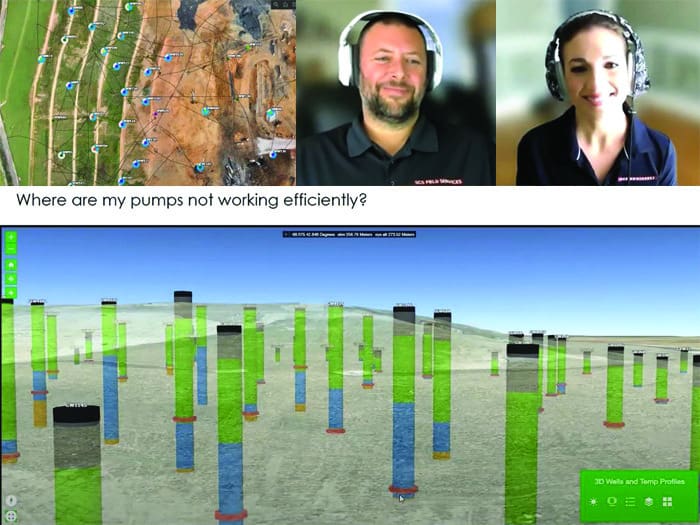
Great innovations take shape when people with shared ambitions, high energy, and creative juices pool their talents and gusto. Meet two professionals at SCS Engineers, who, through their mutual entrepreneurial spirits, found a resourceful way to create landfill efficiencies for operators — saving time and money. Here’s the story of Chris Carver and Joy Stephens — and a service they helped develop, leveraging cutting-edge technology that’s been a game changer for landfill efficiency.
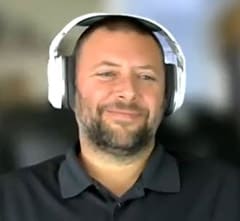
Chris Carver joined SCS Engineers soon after coming out of the military, where he served as an infantry soldier, protecting our country from threats on the ground. Brand new to landfill operations, the now 17-year SCS veteran started out dropping pipes and installing gas collection and control system (GCCS) components.
“But I was hungry to know how all the pieces fit together. I wanted to understand what made these complex systems work and everything they could do,” Carver recalls.
The more he asked, the more he learned, and with that knowledge came new opportunities. He climbed from laborer to field technician to landfill project manager. And, finally, to tech guru, building and managing powerful databases.
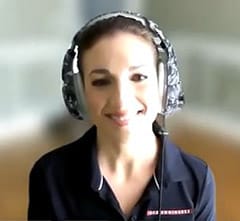
Not long after he’d moved into the IT space, Carver met Joy Stephens; a teacher turned environmental scientist who also did some data processing. They would enter a working relationship about shared learning and feed on each other’s curiosity and knowledge. Their synergy would play a key role in SCS’s GIS services integration with SCS RMC®. By leveraging GIS technology, the duo created site-specific, detailed digital maps that enable operators to visualize what’s happening in the field in real-time. Landfill and environmental staff are continually informed, allowing immediate action when needed. The operation is supporting about 117 patrons around the country and growing quickly.
Carver and Stephens met while working at a Tennessee landfill.
He oversaw field operations, monitoring and managing liquid levels, gas extraction wells, and surface emissions. And he was facilitating the transition to a digital platform to manage and use the field data better.
Stephens processed the data and helped him prepare operations, monitoring, and maintenance reports, which Carver used to identify trends and determine how to improve field operations. She generated those reports mainly from the field tech’s handwritten notes in those days.
In between their office dialogues, Stephens would follow him into the field, curious to see how he and the landfill techs worked.
“We began talking about how we could collect more and different types of data and use it to make the field techs’ and operators’ jobs easier while boosting their efficiency,” she says.
Plenty has transpired since those early conversations, and they continue to take their work further, dedicated now to SCS’s GIS Services, launched under the company’s Remote Monitoring Control Group.
Today, Carver and Stephens make digital forms and maps –Self-Monitoring Analysis and Reporting Technology (aka SMART)—the smartest they can be.
As the system grows in sophistication, clients tap into more information, in more detail, on GCCS, liquid management, and other landfill operations.
Stephens’ bailiwick is creating the smart forms field techs fill out from an app and upload to the cloud, replacing those cumbersome logbooks they used to lug, then bring to her. She also designs maps that connect to and pull information from the forms to visualize the information. She’s a mavin at capturing specific data points that operators look for and formatting the maps to deliver easy-to-read visuals of a lot of information.
Carver’s job is to manage the behind-the-scenes workings of the software to ensure the smart forms and maps perform as designed. There’s a lot of organizing and processing that goes on.
It requires fluency in multiple programming languages to customize functionality for each client. He may need to build in constraints and immediately visible liquid level calculations, write scripts to pull meteorological data from a weather station into a smart form, or script to automate tedious tasks such as parsing temperature probe data.
Stepping back in time, Carver says, “When Joy and I started working together, I was the Google maps guy. I incorporated data in Google maps to guide the field techs to the site locations needing their attention. Then Joy said, have you heard of GIS?”
It was more sophisticated. It could pick up on site-specific details that Google maps couldn’t.
“She showed me how the mapping and visualization worked. We could see liquid column heights in gas wells, fluctuating gas quality, and other actionable details. We would actually be able to monitor the overall health of each well and multiple other operations. I fell in love with it,” Carver says.
That’s when Stephens began creating maps connecting to the digital forms she’d been developing, allowing Carver to identify where to focus quickly.
“It helped me increase efficiency in the field, and our projects gained traction,” he says.
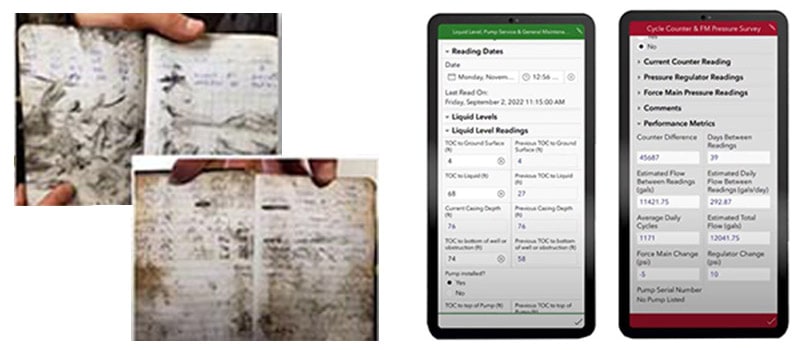
Stephens, like Carver, continually seeks to know more.
“In those early days when I went out in the field with Chris, I’d ask a ton of questions to understand better what information to capture and incorporate into the forms. Why are we monitoring this? What constitutes good gas quality? Why is it important to know liquid levels?” Stephens reflects.
They were the same questions Carver had asked years before, and he was impressed.
“I wanted a smart, curious partner who would move things along. And that is Joy,” says the equally curious and ambitious techie who taught himself how to code when building a website for his son’s baseball team.
As colleagues and friends, they have taken GIS capabilities beyond monitoring and analyzing field conditions. Now the system connects to IoT technology, enabling operators to take action remotely, whether increasing or reducing gas flow or turning dewatering pumps on or off, among measures.
They have mastered another skill set to capture and layer in more data. They’ve become drone pilots, flying unmanned aircraft over landfills to record methane emissions-related information from locations hard or unsafe to reach by foot.
As co-pilots, they share another interest beyond teaching, learning, and making technology do what they want.
It’s a time to experience their mutual affinity for the outdoors, take in their surroundings, and reassert that what they do is more than worthwhile.
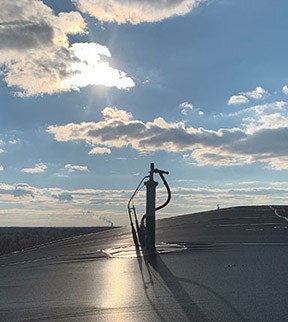
“The top deck of the landfill, where Joy and I do our drone flights, is one of the most beautiful places. Depending on the part of the country, you see the woodland and mountains for miles. And get spectacular views of the town,” Carver says.
Stephens recalls an especially memorable flight on the East Coast getting methane emissions readings.
“We were gazing upward, and a pair of bald eagles on the landfill were soaring above us. It was one of those moments where we just looked at each other in awe.”
Later they talked about how that moment reminded them of what they do and why they do it.
“There is this incredible world around us. In responsibly managing landfills, with their important role in keeping communities clean and capturing climate-impacting methane, we help to preserve that world,” Stephens says.
Carver chimes in: “I think sometimes people lose sight of the fact that when we are gone, we leave this planet to our kids. Whatever we can do to improve it for them and their kids … that’s a good motivator for me.”
Click to learn more about
Click to learn more about environmental careers at SCS Engineers.
Join SCS’s next educational forum on remote monitoring and control technologies.
SCS Engineers is a sponsor of the 2023 Food and Beverage Environmental Conference taking place March 26-29, 2023, at the Hyatt Regency Incline Village in Lake Tahoe, Nevada.
FBEC is the premier and most comprehensive environmental event for the food and beverage industry in the United States. It brings together industry, academia, non-government organizations, and suppliers in a casual atmosphere that allows for the free flow of information and ideas. The conference includes a single program of sessions, information exchange, poster sessions, and socializing and networking events, all of which uncover the latest trends and innovations affecting water reuse, supply chain challenges, air quality and many more.
The 2023 Conference will explore the following topics and more!
Participants and attendees include craft breweries and distilleries, pet food makers, grocery stores, nutritionists, farmers, and food and beverage processors, as well as those involved in transportation, distribution, preparation, supply chain management, EHS, sustainability and wastewater solutions.
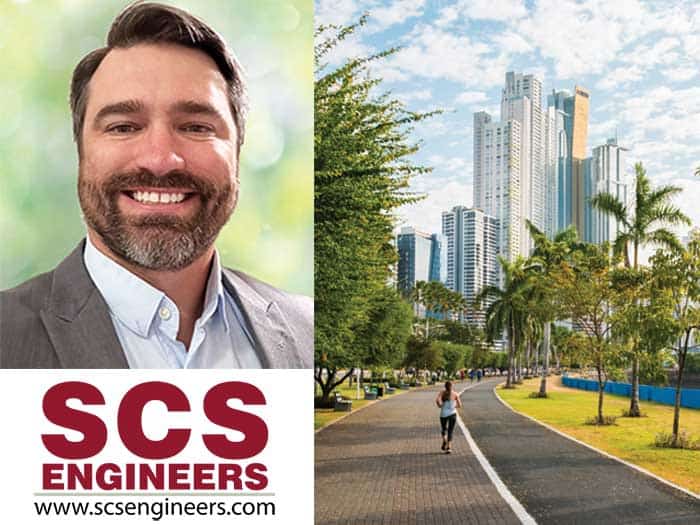
Donald Barfield (Don) joins SCS Engineers as a Project Director specializing in environmental assessment and brownfield remediation, the first step in returning damaged sites and property to productive use. Barfield brings AAI expertise developed at over 2,000 assessments and brownfield projects throughout the United States and globally, keeping them on schedule and budget.
“Don’s proven track record fits our aim to create sustainable environmental solutions. Our consulting engineer teams include members with field and financial experience to create solutions that meet and remain compliant with local, state, and federal policies while economically and socially practical, states Senior Vice President and Southeast Business Director Carlo Lebron.
All Appropriate Inquiries (AAI) is a process of evaluating the environmental condition of a property and assessing the likelihood of contamination. Parties must comply with the requirements of the AAI Rule or follow the standards set forth in the ASTM E1527-13 or E1527-21 Standard Practice for Phase I Environmental Site Assessments to satisfy the statutory requirements for conducting all appropriate inquiries.
Today’s commercial property transactions take environmental issues into consideration. Complex laws can impose significant environmental liabilities on purchasers, sellers, and lenders, whether or not they caused the problem and whether or not they still own the property.
Don brings years of experience helping municipalities, developers, and industrial clients prepare and submit EPA Brownfield Assessment and Cleanup Grants, including the compliance reporting and due diligence associated with making these projects successful for communities and businesses. His project experience includes due diligence and risk reviews for large acquisitions or mergers and the assessment and development of closure plans for RCRA Regulated Units.
“Sustainability and environmental compliance are important factors in moving projects forward while protecting communities,” says Don. “There are funding, grants, tax credits, and incentives available now. In Florida, the Voluntary Cleanup Tax Credit Program could support mixed-use developments and potential partnerships right now.”
Barfield is an LEED® Accredited Professional, HAZWOPER Certified, and an ASTM Environmental Professional. He earned his MBA at the University of North Florida and a BS in Biology at Jacksonville University.
SCS Engineers’ environmental solutions and technology directly result from our experience and dedication to industries responsible for safeguarding the environment as they deliver essential services and products. For more information about joining us, please visit the SCS Engineers website, or watch our video to see what we can do for your business and community.
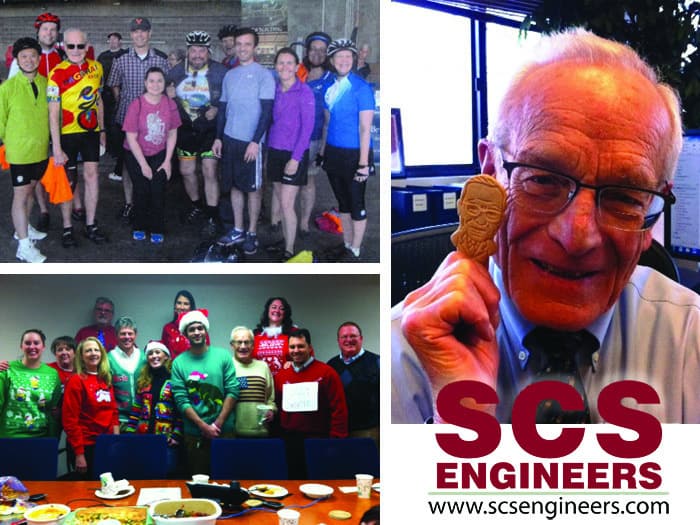
We are deeply saddened by the passing of our founder Tom Conrad, but we celebrate his spirit by continuing the culture he established at SCS Engineers. Tom was energetic, creative, hard-working, and fun-loving! His accomplishments in preventing and mitigating environmental damage are just one of the reasons we respect him so much.
Another reason is that Tom believed in providing opportunities for everyone. He founded and ran SCS based on giving individuals the tools they need to thrive while providing for their families, the environment, and their communities. These tools are trust, mentorship, and open dialog. By building these philosophies into our culture, Tom sparked multiple innovations and environmental solutions by some of the finest people you’ll ever want to meet.
These SCSers continue our culture of caring and listening. Anyone at SCS can contribute their ideas for improving a process or technology. Our executives promote forums to keep the conversations and idea exchanges going and open to all. And just as Tom would insist, innovations are proven before they are implemented.
We’re proud of all SCSers, especially our young professionals, who consistently bring in fresh ideas and perspectives by asking “why and how” questions. Designing sustainable environmental solutions requires a deep understanding of systems, processes, and industry knowledge. Asking the right questions and seeking answers indicates a curious mind; Tom called these people “thinkers,” one of the best compliments we could get. Asking these questions indicates a self-actualized mind. And answering the questions takes a team. At SCS, we encourage both.
SCS’s mentorship and young professionals programs are thriving. They were established more formally in the last decade but have always been a part of SCS. President and CEO Jim Walsh called Tom “The best mentor anyone could ever have,” going on to say that Tom “taught me a lot, but more, he let me figure things out on my own… I’ve often said that my best four years of education were not high school or college; it was learning from Tom Conrad.”
SCS’s culture survives because of trust. So as Tom did, we continue to place trust and confidence in SCS’s employee-owners. Tom understood long ago that trust creates a culture of teamwork and respect, enabling effective problem-solving. In fact, Tom was so proud and confident in the firm’s environmental accomplishments in 1987 that he modified the company’s Employee Stock Ownership Plan to expand ownership of SCS to all employees. Today SCS remains 100% employee-owned and is a driving force for SCSers to deliver high-quality and ethical solutions to our clients.
Tom’s other major and no less important philosophy was to “have fun!” We take the time to engage and laugh with our colleagues, clients, and associates.
Our nationwide offices are busy year-round helping their communities, especially during the holidays. A special thanks to our young professionals, who think BIG, for organizing our annual Feed America campaign, always with a healthy, fun competition between our offices!
You can learn more about how SCS continues in Tom Conrad’s spirit today by watching this short video made by SCSers coast to coast.
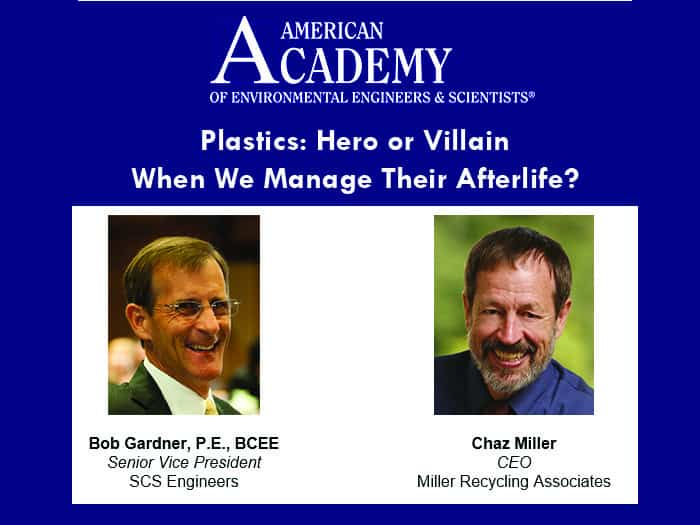
AAEES Webinar Plastics: Hero or Villain When We Manage Their Afterlife?
Wednesday, January 11, 2023
12:00 PM Eastern | 9:00 am Pacific
1 hour and 30 minutes (approximate)
$40 for non-members | FREE for all AAEES Members
American Academy of Environmental Engineers & Scientists (AAEES) presents an interactive session with “live chat” capability. The session is open to environmental engineering and science professionals across all sectors and career stages. Our objective is to offer special insights on leading-edge solutions for graduate and undergraduate students and early to mid-career environmental professionals considering specialty certification.
AAEES Board Certified Individuals: Attend this event and earn 1.5 PDHs towards your PDH requirements for maintaining your specialty certification.
Webinar Summary
Plastics have always had a rocky reputation. Fifty years ago, the Kinks sang “Plastic Man” as a paean to their superficiality. Now they are blamed for a wide array of problems ranging from marine debris, environmental injustice, negative health impacts, and fraudulent recycling. Yet their use has transformed the products we use in our daily life and what we do with those products when we are through with them. In 1960, plastics were less than half of a percent of America’s trash. Today, they are one-eighth of the garbage we generate. Their impact is significant.
This webinar will look at the rise of plastics in our waste. It will examine the collection, disposal (whether energy recovery or landfill), and recycling along with the extent to which plastics have led to less waste to manage. This webinar will teach you more about plastics’ pervasiveness in our society and how we can best manage their afterlife.
About the Presenters
Bob Gardner holds B.S. and M.E. degrees in civil engineering from the University of Virginia. He is a Senior Vice President of SCS Engineers and has been with the firm since 1980. He serves on the firm’s Board of Directors and oversees SCS’s nationwide solid waste management practice. His expertise is in solid waste management and environmental engineering. He provides consulting and engineering services to municipal and private clients throughout the United States and abroad. Bob is involved with the Environmental Research and Education Foundation Research Council. He is a past Director of the Solid Waste Association of North Americas Landfill Management.
Chaz Miller is a fifty-year veteran of the waste and recycling industry. He was part of EPA’s original Resource Recovery program, is a recipient of a Lifetime Achievement Award from the National Recycling Coalition, chaired the Aiming for Zero Waste Task Force in his home county in Maryland and writes an award-winning column for Waste360 magazine.

The announcement of new developments, especially new housing, is always welcome, given nationwide shortages. Wood Partners recently spoke of its Alta Cuvee project in Rancho Cucamonga, CA., an area experiencing high growth rates. With the construction currently underway, the community plans to open in late 2024.
Careful development companies follow all environmental guidelines set forth by local, state, and federal agencies to ensure sustainability. At the Alta Cuvee project, SCS Engineers performed a Phase I Environmental Site Assessment, ensuring due diligence on the part of Wood Partners.
Today’s commercial real estate transactions take environmental issues into consideration. Complex laws can impose significant environmental liabilities on purchasers, sellers, and lenders, whether or not they caused the problem and whether or not they still own the property.
When looking for a new home, look for reputable companies that perform due diligence. When looking for environmental due diligence services, look for engineers and consultants providing comprehensive services for the welfare of future tenants, owners, and your firm’s reputation.
All Appropriate Inquiries (AAI) is a process of evaluating the environmental condition of a property and assessing the likelihood of contamination. Parties must comply with the requirements of the AAI Rule or follow the standards set forth in the ASTM E1527-13 or E1527-21 Standard Practice for Phase I Environmental Site Assessments to satisfy the statutory requirements for conducting all appropriate inquiries.
Learn more: